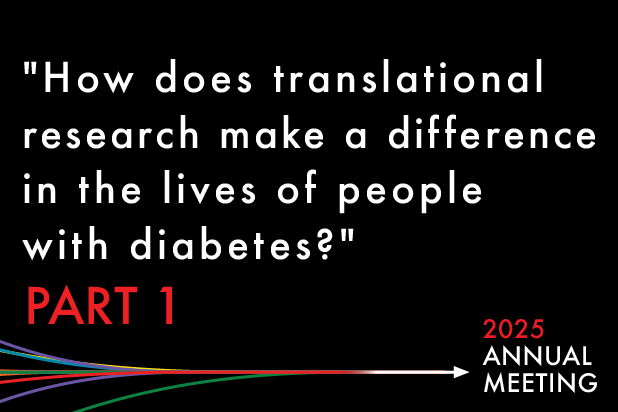2025 Annual Meeting Speakers
Morning Speakers
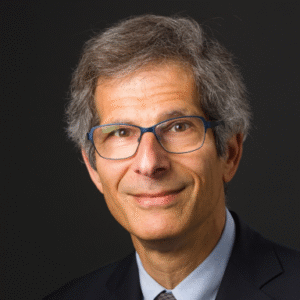 |
|
C.N.H. Long Professor of Immunobiology and Medicine (Endocrinology) | Yale School of MedicineDr. Herold received his MD from Jefferson Medical College and completed his training in Internal Medicine at Temple University Hospital. He was a fellow in Endocrinology and post-doc in immunology at The University of Chicago. He then went to the Hagedorn Research Laboratory in Denmark, he joined the faculty at The University of Chicago where he rose to the rank of Associate Professor. He moved to New York to Columbia University and in 2006 to Yale University. He has built a program in translational immunology focused applying mechanistic discoveries to treat autoimmune diseases, including Type 1 diabetes (T1D). He brought teplizumab, the first drug approved by the FDA to treat the underlying cause of T1D from mice to humans. He showed that brief treatment with teplizumab, which is a humanized FcR non-binding anti-CD3 mAb could reduce beta cell killing without continuous immune suppression and improved clinical outcomes in patients with Type 1 diabetes. He led the study by NIDDK TrialNet showing teplizumab delayed the onset of clinical T1D in non-diabetic relatives at high risk for T1D and most recently was the senior investigator on the PROTECT study showing its efficacy in new onset T1D. Teplizumab is the first drug approved to delay or prevent any autoimmune diseases. His studies have bridged immunology, cell biology and metabolism and identified relationships between immune and endocrine cells. He found recoverable impairments of beta cells in preclinical models and patients by describing how beta cells adapt to and survive immune attack by “dedifferentiation”. He was also the first to describe autoimmune diabetes that was induced by anti-PD-1/L1 checkpoint inhibitors in patients treated for cancers and the clinical, cellular, and molecular mechanisms underlying this event. He also identified molecular mechanisms that can prevent killing of beta cells by inflammatory mediators or cells. This work is leading to the development of replacement beta cells for patients with diabetes. He has served as Chair of NIDDK TrialNet, the premier network for testing therapies to prevent and delay T1D, since June 2021. In 2024 he was appointed as the Director of Human and Translational Immunology at the Yale School of Medicine. |
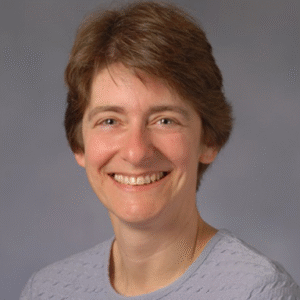 |
|
Executive Associate Dean for Research Affairs; Distinguished Professor; August M. Watanabe Professor of Medical Research; Professor of Medical & Molecular Genetics; Adjust Professor of Psychiatry | Indiana University School of Medicine
|
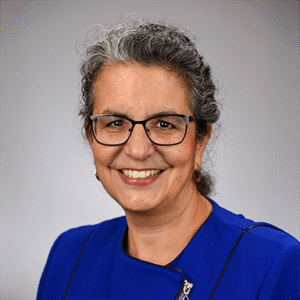 |
|
Edwin Letzter Professor of Pediatrics; Division Chief, Pediatric Endocrinology and Diabetology | Indiana University School of MedicineLinda DiMeglio, MD, MPH, is the Edwin Letzter Professor of Pediatrics at Indiana University School of Medicine, Division Chief of Pediatric Endocrinology and Diabetology at Riley Children’s Health, and co-director of Workforce Development for the Indiana CTSI. Her research focuses on type 1 diabetes prevention, beta-cell preservation, and emerging therapies. She has published 200+ articles and co-leads the International Society for Pediatric and Adolescent Diabetes guidelines. Dr. DiMeglio is co-PI of the National DiabDocs Physician Scientist Development Program, Vice Chair of Type 1 Diabetes TrialNet, and received of the 2023 George Eisenbarth Award for her leadership in advancing T1D prevention. |
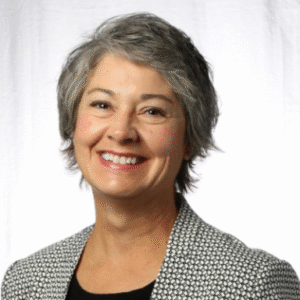 |
|
Professor of Pediatrics and Medical and Molecular Genetics; Director, Clinical Diabetes Program | Indiana University School of MedicineTamara S. Hannon, MD, is a physician scientist with clinical, translational, health services, community-engaged, and participatory design research expertise in youth and adult diabetes. Her research program involves primary and secondary prevention of diabetes-related complications and the development of interventions to improve self- care in diabetes. She has been funded since 2002 and has experience in directing clinical research operations and serving in leadership roles at all levels. She has a mission to translate findings from the laboratory to the advancement of clinical diabetes practice and an overarching goal to promote self-actualization and whole person health in all people with diabetes. |
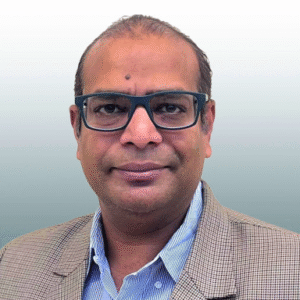 |
|
Director, Integrated Nanosystems Development Institute; Professor & Interim Chair of Biomedical Engineering & Informatics | Luddy School of Informatics, Computing, and Engineering, Indiana UniversityDr. Agarwal is the Founding Director of the Integrated Nanosystems Development Institute (INDI); and Interim Chair of the Department of Biomedical Engineering & Informatics, Luddy School of Informatics, Computing, and Engineering at Indiana University Indianapolis. He earned his Ph.D. from Louisiana Tech University and has over 20 years of experience. His research spans bio/nanotechnology, sensor development, noninvasive health monitoring, and smart technologies and has pioneered breath-based glucose monitoring, and other innovative nanomaterial platforms. Under his leadership, INDI fosters collaborative research across engineering, chemistry, and informatics, translating cutting-edge nanotechnology into practical solutions that improve quality of life and support sustainable development. |
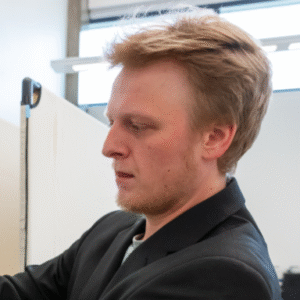 |
|
Senior Research Scientist | Integrated Nanosystems Development Institute, School of Science, Indiana University IndianapolisMark Woollam, PhD, is a Senior Research Scientist at the Integrated Nanosystems Development Institute (INDI) and a researcher at Indiana University Indianapolis. His research centers on developing techniques to detect volatile organic compound (VOC) biomarkers in noninvasive samples such as urine and exhaled breath. He earned a BS in Chemistry from Indiana University of Pennsylvania and completed his PhD in bioanalytical chemistry at IU Indianapolis, where he applied chemometric methods to identify VOC biomarkers for conditions including cancer, hypoglycemia, COVID-19, and cystic fibrosis. At INDI, he continues to advance scientific innovation through peer-reviewed publications and contributions to externally funded research initiatives. |
 |
|
Professor of Medicine; Director, Diabetes Clinical Research | Center for Diabetes and Metabolic Diseases, Indiana University School of MedicineViral Shah, MD, is a Professor of Medicine, Division of Endocrinology & Metabolism and Director of Diabetes Clinical Research at the IU Center for Diabetes and Metabolic diseases. He focuses on diabetes technologies and adjunctive therapies to improve outcomes in type 1 diabetes (T1D), and the impact of T1D on skeletal health. He has led 30+ clinical trials, has 220+ publications and has contributed to FDA-approved devices. He is the recipient of the ADA Diabetes Technology Interest Group Award (2022); Diabetes Technology Society Leadership Award (2023); and the Mary Tyler Moore and S. Robert Levine, MD, Excellence in Clinical Research Award (2024). |
 |
|
Vice President, Diabetes, Obesity, and Cardiometabolic | Research, Lilly Research Laboratories, Eli Lilly and CompanyMelissa K. Thomas, MD, PhD, is a physician scientist and endocrinologist whose work focuses on advancing translational medicine and emerging innovation across discovery and clinical research portfolios, including programs related to Type 1 diabetes and incretin innovation. Prior to joining Lilly Research Laboratories she conducted basic diabetes research and served on the faculty of Harvard Medical School. As an industry leader she has contributed to multiple public-private research partnerships, including leadership in the EU Innovative Medicines Initiatives Strategic Governing Group for Diabetes and Metabolic Disorders and Accelerating Medicines Partnership programs for Type 2 Diabetes and for Common Metabolic Diseases. |
Afternoon Speakers
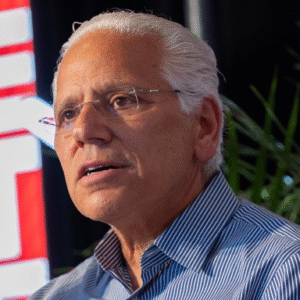 |
|
Distinguished Professor, Linda & Jack Gill Chair in Biomedical Science | Indiana University BloomingtonRichard DiMarchi, PhD, is a Distinguished Professor of Chemistry and Gill Chair in Biomolecular Sciences at Indiana University. A member of the National Academy of Medicine and National Inventors Hall of Fame, he formerly held executive roles at Eli Lilly and Novo Nordisk. He contributed to the development of Humulin®, Humalog®, Forteo®, and rGlucagon®. His research advanced glucagon physiology and multimode agonists for management of excess body weight. Co-inventor on 100+ U.S. patents and co-author of 250+ publications, he’s co-founded eight biotech firms and earned major awards, including the 2023 AAAS Bhaumik Breakthrough Award for transformative drug treatments of obesity. |
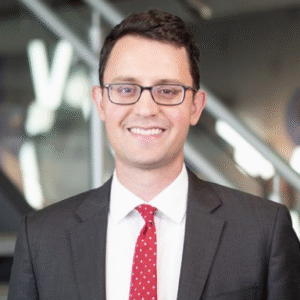 |
|
Assistant Professor of Surgery | Indiana University School of MedicineTarik K. Yuce, MD, is a bariatric surgeon and health services researcher who serves as an Assistant Professor of Surgery in the Department of Surgery at the Indiana University School of Medicine. Dr. Yuce’s research focus is in the medical and surgical treatment of obesity, with a particular interest in issues surrounding the delivery of timely care. He completed his research fellowship in Chicago at the Surgical Outcomes and Quality Improvement Center within Northwestern University and has co-authored more than 30 peer-reviewed publications. |
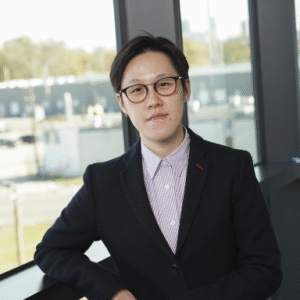 |
|
Assistant Investigator | Lilly Diabetes Center of Excellence, Indiana Biosciences Research InstituteErica P. Cai, PhD, is an Assistant Investigator at the Indiana Biosciences Research Institute and a member of the Center for Diabetes and Metabolic Diseases at Indiana University School of Medicine. Her research integrates genetic engineering, cell biology, and immunology to explore beta cell dysfunction and autoimmune diabetes. Her lab conducted first-ever in vivo CRISPR-Cas9 screening in an autoimmune diabetes model, and continues to investigate gene pathways that regulate beta cell stress, immunogenicity, and survival. A Breakthrough T1D Career Development Award recipient, Dr. Cai leads projects focused on beta cell replacement and disease-modifying therapies for type 1 diabetes. |
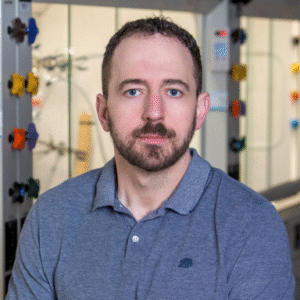 |
|
Keating-Crawford Collegiate Professor of Engineering; Acting Director | Berthiaume Institute for Precision Health, University of Notre DameMatthew Webber, MD, is the Keating-Crawford Collegiate Professor of Engineering, Professor in the Department of Chemical & Biomolecular Engineering, and the Director of the Berthiaume Institute for Precision Health at the University of Notre Dame. His research applies supramolecular principles to advance biomaterials and drug delivery. He was awarded the JDRF Career Development Award (2020); NSF CAREER Award (2020); AIChE Owens Corning Award (2023); and the ASEE Curtis McGraw Research Award (2024). He was elected a Fellow of the American Institute for Medical and Biological Engineering (AIMBE) in 2023 and a Senior Member of the National Academy of Inventors in 2025. |
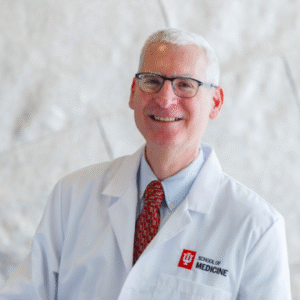 |
|
Chair, Department of Biochemistry & Molecular Biology; Chair, Precision Health Initiative (PHI); Distinguished Professor | Indiana University School of MedicineMichael Weiss, MD, PhD, is a Distinguished Professor at Indiana University and Robert A. Harris Chair of Biochemistry at IU School of Medicine. A Harvard-trained physician-scientist, he has led groundbreaking research on insulin structure and function, earning the JDRF’s Gerold and Kayla Grodsky Basic Research Scientist Award. He holds 20+ insulin-related patents and is Chief Innovation Officer of Thermalin, Inc. Dr. Weiss has held faculty roles at Harvard, University of Chicago, and CWRU, and chaired the NIH NIDDK Board of Scientific Counselors. He is a member of ASCI and AAP, and has served on multiple nonprofit boards, including the U.S. Presidential Scholars Foundation. |
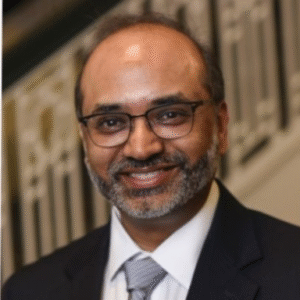 |
|
David H. Jacobs Professor of Infectious Diseases; Professor of Medicine; Director, IU Infectious Diseases Research; Director, Division of Infectious Diseases | Indiana University Infectious Diseases Research, Indiana University School of Medicine
|


